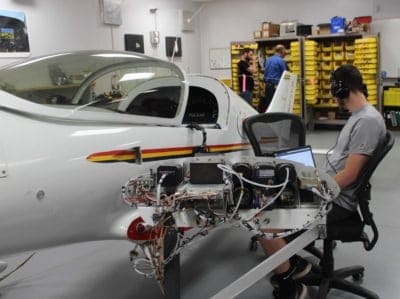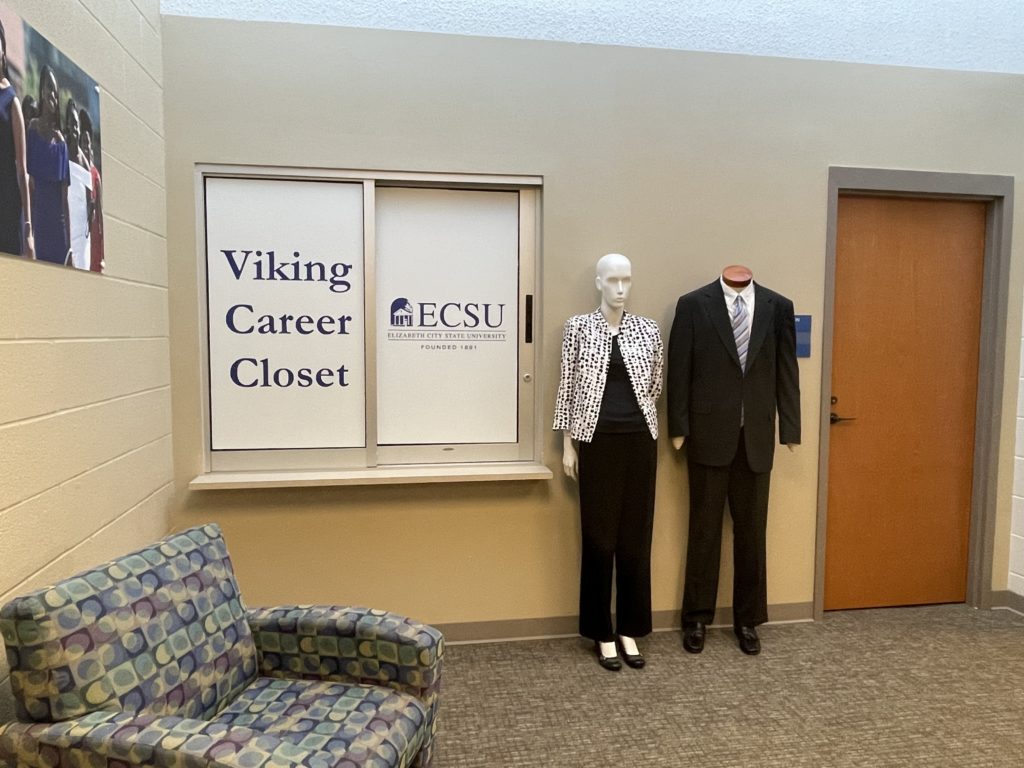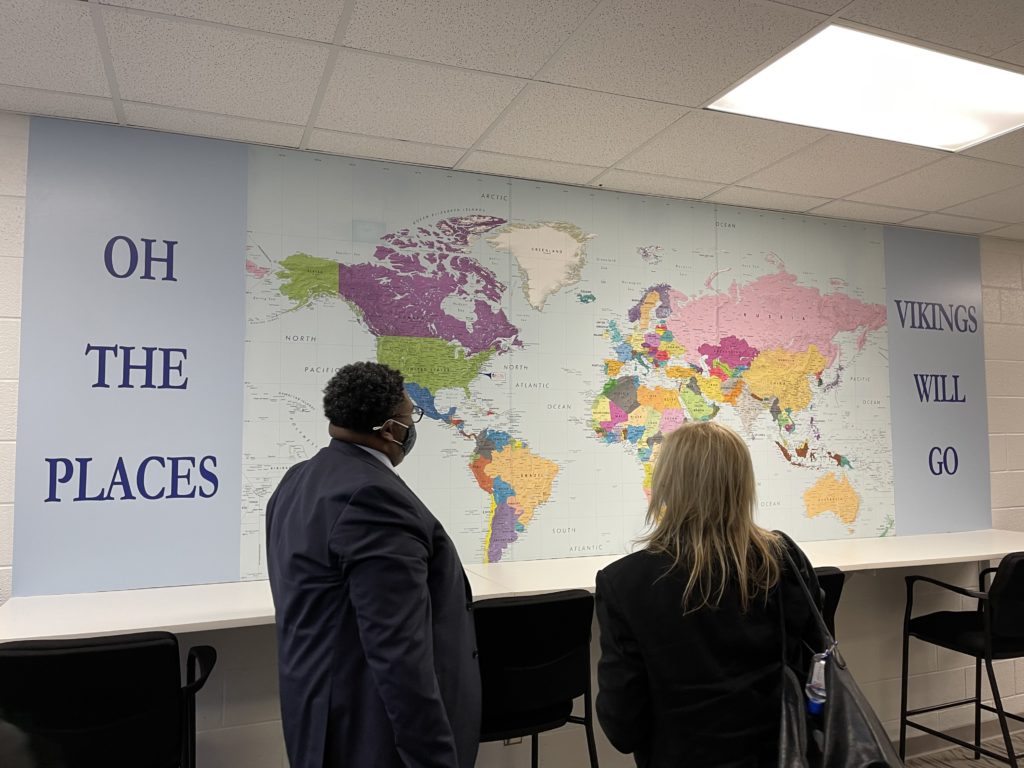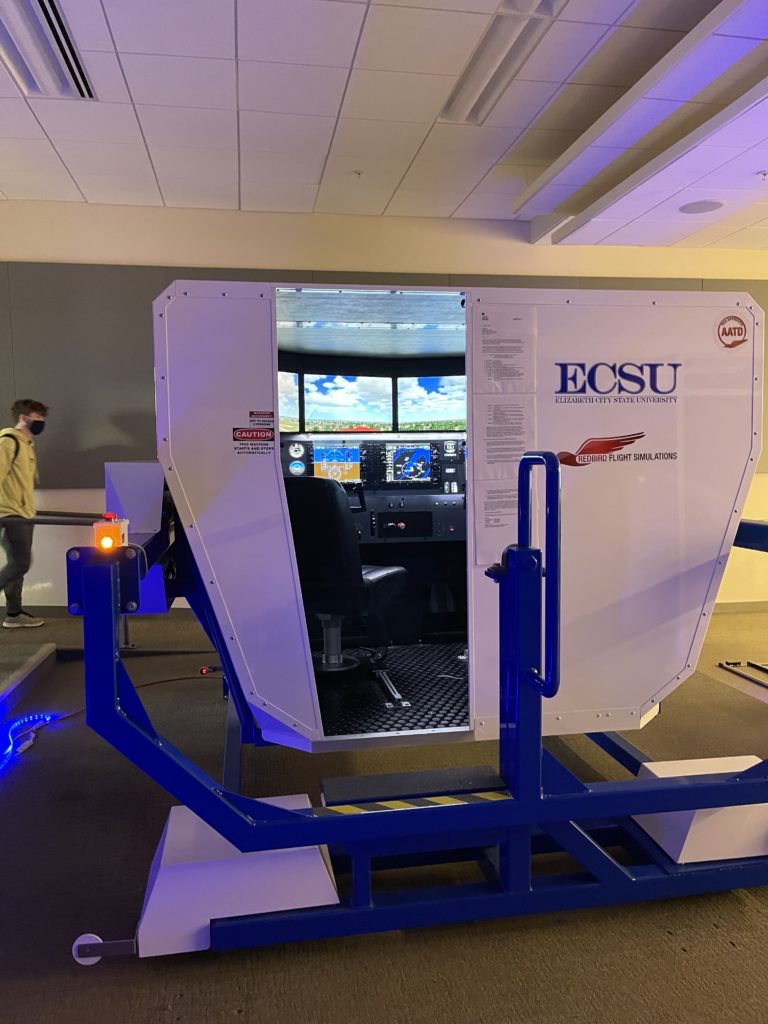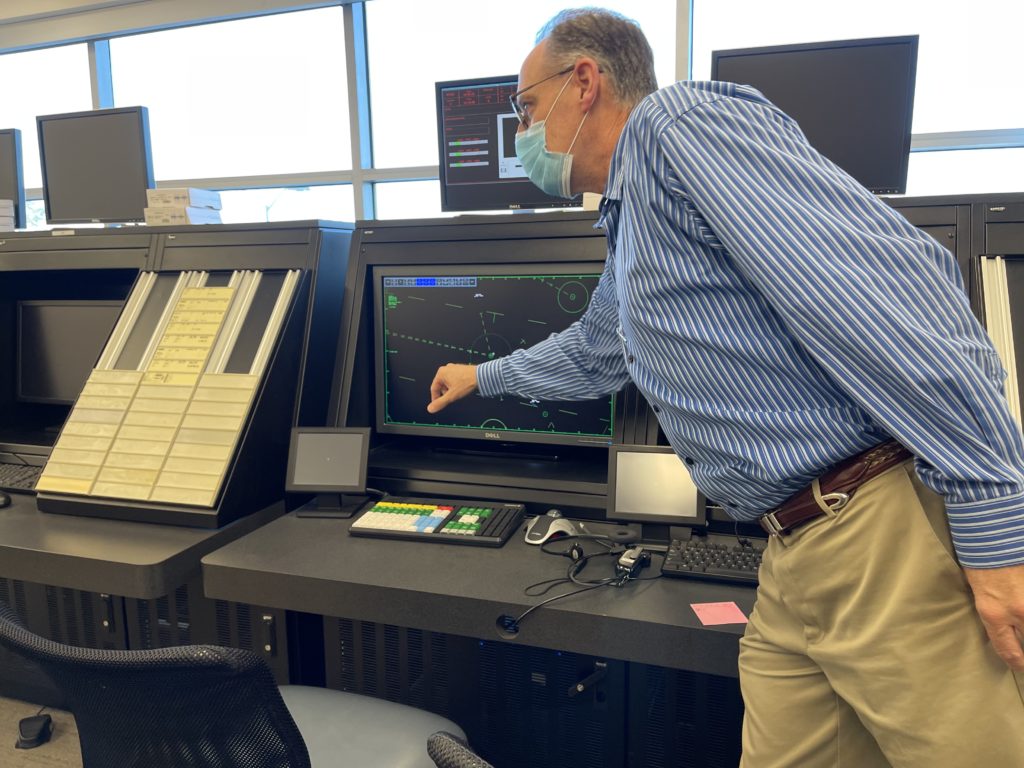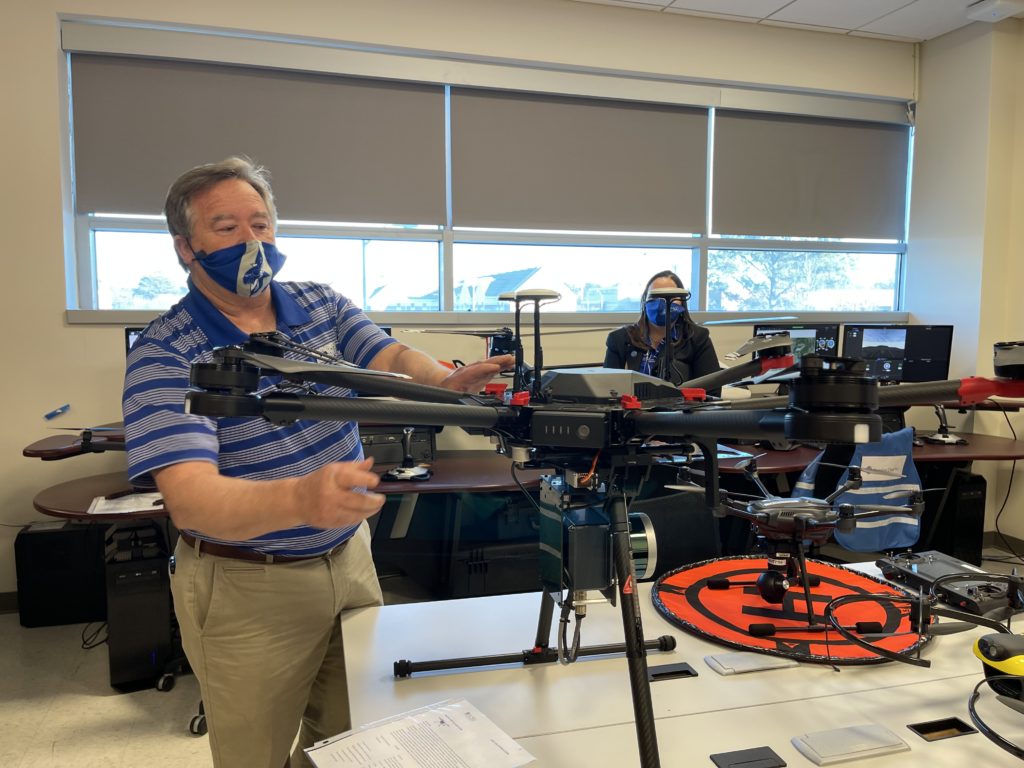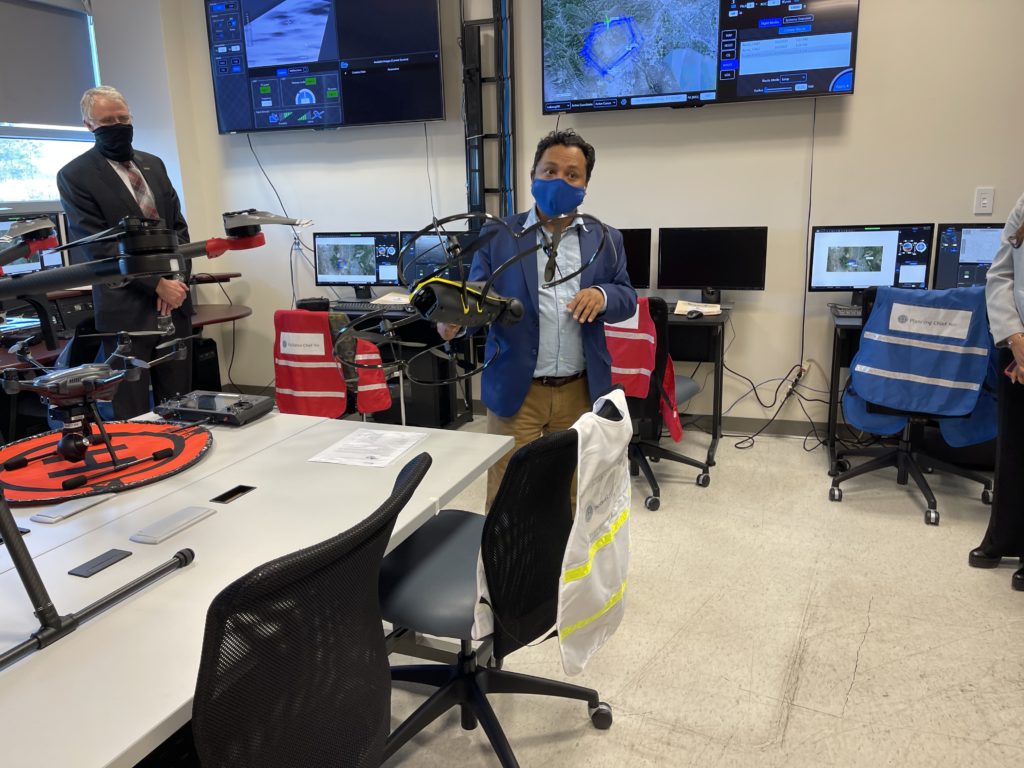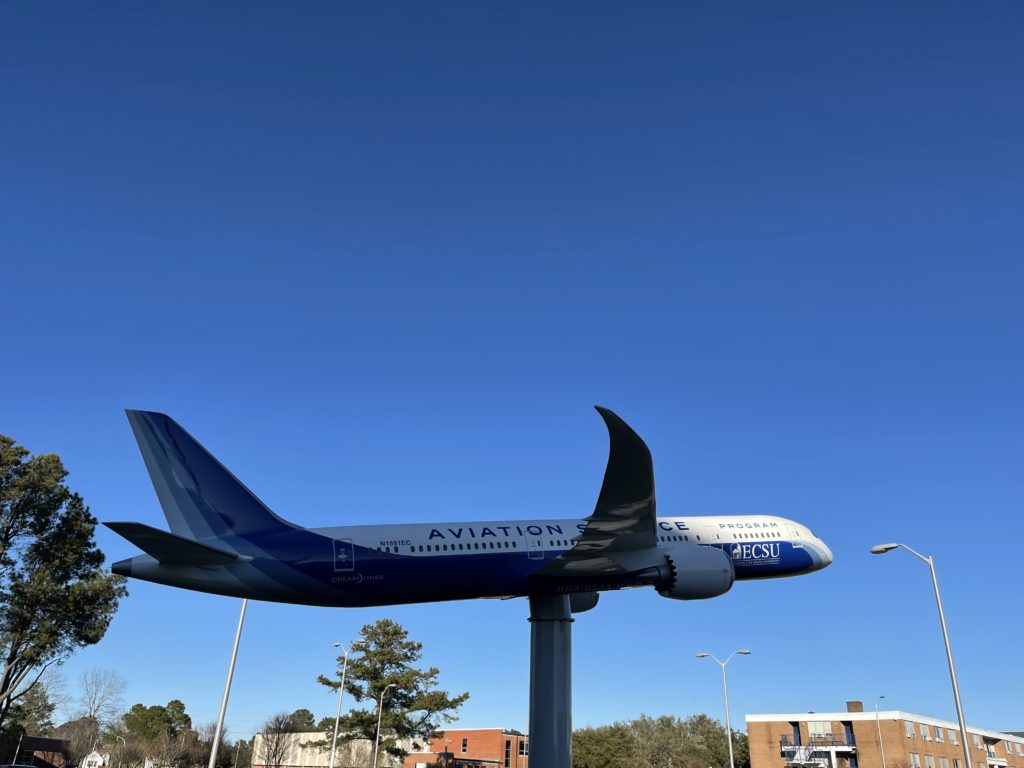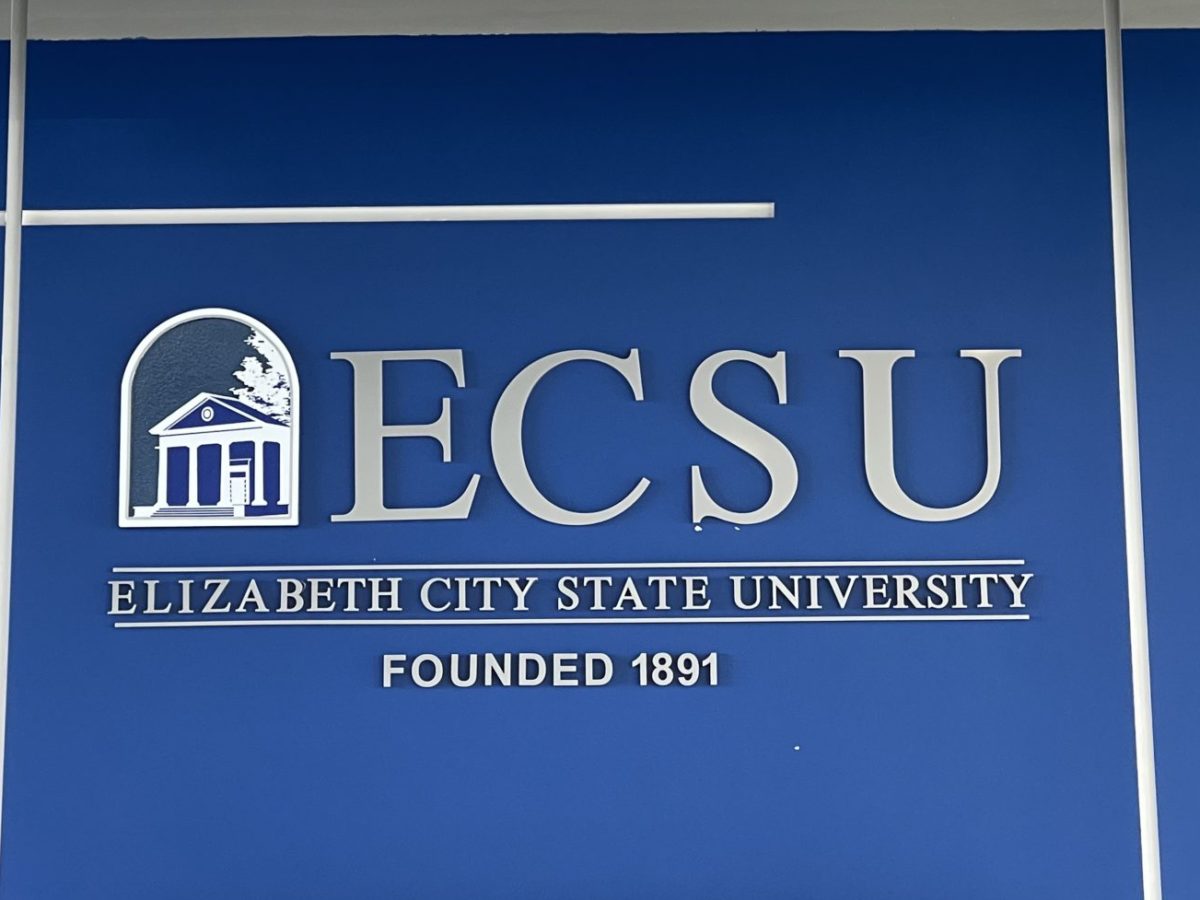
March 3 is a significant day for Elizabeth City State University (ECSU).
In 1891, Hugh Cale, a Black Pasquotank County House Representative, sponsored House Bill 383, which established a school for the purpose of “teaching and training teachers of the colored race to teach in the common schools of North Carolina.” The bill passed, and on March 3, 1891, Elizabeth City State University was founded.
On March 3, 2021, 130 years later, EducationNC, along with the John M Belk Endowment and Golden LEAF Foundation, visited Elizabeth City State University to learn more about their history and how they plan to move forward.
Getting to know Elizabeth City State University
ECSU is one of 10 Historically Black Colleges and Universities (HBCUs) in North Carolina. The principal mission of HBCUs established prior to 1964 was to educate Black Americans.
“These institutions were founded and developed in an environment of legal segregation and, by providing access to higher education, they contributed substantially to the progress Black Americans made in improving their status,” states a fact sheet from the National Center for Education Statistics (NCES).
Though originally founded to educate Black students, HBCUs now enroll students of all races. According to NCES, non-Black students made up 24% of enrollment nationally at HBCUs in 2018 compared with 15% in 1976.

ECSU is a part of the University of North Carolina System and has a total enrollment of 2,002. Located in the historic Albemarle region of northeastern North Carolina, ECSU is a waterfront community near the Pasquotank River. The university is surrounded by 21 tier one and tier two counties — “some of the most economically distressed counties in North Carolina,” said Dr. Karrie Dixon, chancellor and chief executive officer of ECSU.
Facing the challenges
Like many HBCUs, ECSU has struggled to maintain its enrollment throughout the years. From 2010-2016, enrollment at colleges and universities across the US dropped 6%. Enrollment at HBCUs dropped 11%. ECSU experienced the largest enrollment decline in the UNC System from 2011-2017.
And the challenges kept coming.
In 2014, a provision was introduced in the state Senate budget that would have likely closed the doors to Elizabeth City State University. The provision mandated a study by the UNC Board of Governors to dissolve campuses where full-time enrollment fell by more than 20% since 2010. After public outcry, the Senate voted to remove the provision.
At the time, ECSU was the area’s third largest employer. Additionally, it produced 64% of the elementary school teachers and 38% of the secondary school teachers in northeastern NC.
The university also experienced ongoing changes in leadership. In just eight years, from 2013-2021, the university has had four different chancellors. A recent ECSU strategic plan document noted that students, faculty, staff, and community members believed leadership changes were hindering ECSU’s stability.
Despite these challenges, ECSU has persevered. In 2016, the university was chosen by the North Carolina General Assembly to become an NC Promise School. The NC Promise Tuition Plan reduces student tuition costs to $500 per semester for in-state students and $2500 for out-of-state students.
In December 2018, ECSU named Dixon their 12th Chief Executive Officer and 7th Chancellor. “When I started here, I knew there was a jewel right here in northeastern North Carolina,” Dixon told us during our recent visit. “I did not listen to those who told me there was no hope. I did not listen to those who told me that this was not the right career for me. What I did, though, is look at the promise that this great university has and the people it serves. I couldn’t see that until I became part of this community. I understood how important this university is to this region, and how important it is to these people as a whole.”
Dixon went on to say, “The people here deserve the best. They deserve an institution that is thriving. They deserve an institution that is building a foundation for the sustainability of the future and future generations to come.”
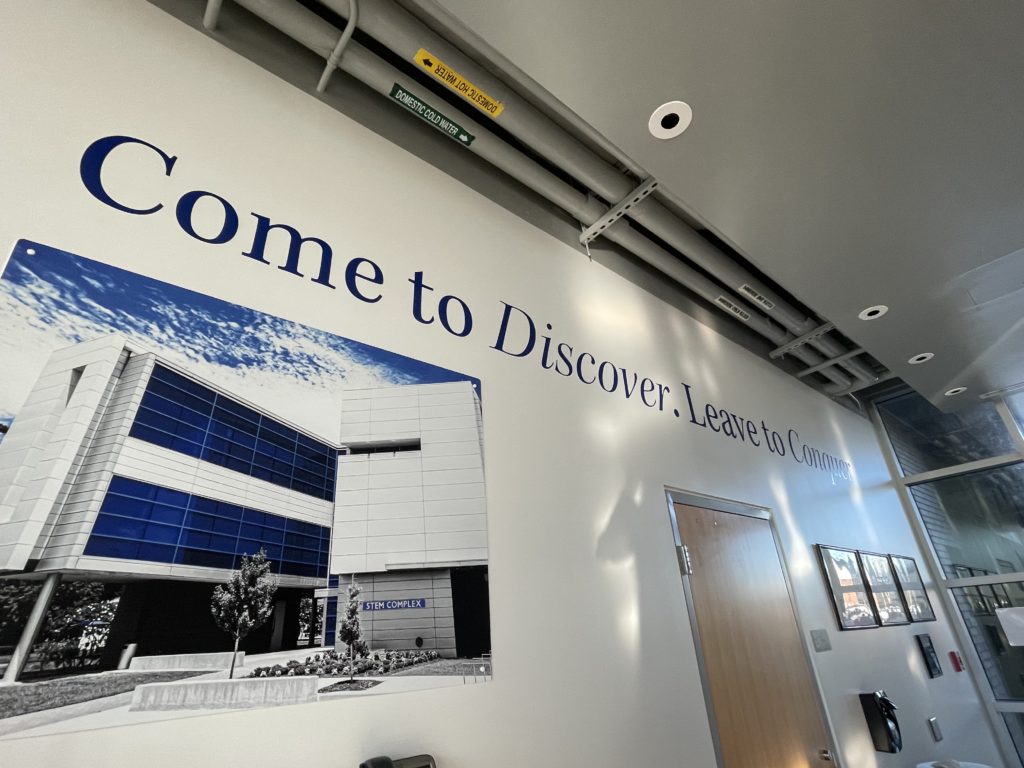
When Dixon started in 2018, morale was low, she said. Legislators were calling her, she said, asking, “Can you cut the grass? The campus looks awful.”
Dixon and her leadership team were very strategic when trying to find funding within their budget. In order to beautify the campus, Dixon had to keep some vacant positions open. It was a move to invest in and restore pride in their campus. As the university was working to create a better first impression, Dixon received a meeting request from student leaders.
“When they came to my office, they sat down and said, ‘Dr. Dixon, we see progress.’ I had to stop a minute. And I said, ‘Progress? Tell me more about that.’ And they said, ‘We see fresh mulch around the trees,’” Dixon said. “When you have a student body president and a leadership of students who come to your office to say they see fresh mulch around the trees and they are proud of that, boy can we do something. That touched me. If fresh mulch around the trees makes them happy, they deserve more. We can do more.”
But the transformation hasn’t just been one of external improvements. On the latest employee satisfaction survey, ECSU scored some 40 points higher than they scored two years ago. “We were the highest scoring university in employee satisfaction out of all 17 universities in the UNC System,” said Dixon. “We have faculty and staff that are committed to this university and wanting to see it be its best. They’re still here because they believe it – we just had to give them hope.”
Sign up for Awake58, our newsletter on all things community college.
Enrollment growth during a pandemic
In 2020, ECSU, along with the rest of the world, experienced another challenge. The COVID-19 pandemic was another reminder of the differing socioeconomic factors students and families face. Students on ECSU’s campus told Dixon, “Please don’t send us home.”
“Our students would rather be here on campus than be at home because they recognize when they are on campus that they are able to access resources that they don’t have at home,” said Dr. Gary Brown, vice chancellor for student affairs.
ECSU has remained committed to providing access to a high-quality, affordable education. To do that, ECSU instituted a culture of expectation. Dixon told students, “If you hold yourself and your peers accountable for doing the right thing, then you’ll be able to stay on campus because our goal is to minimize the spread.”
“I think building that culture of expectation really spoke to them because some students’ living conditions are better here than they are at home,” said Dixon.
Despite a global pandemic, ECSU saw a 13% enrollment increase in Fall 2020. EdNC’s Nation Hahn asked what contributed to the growth, and the leaders of ECSU had a few thoughts.
“NC Promise helped us position ourselves from the standpoint of affordability,” said Dixon. During a time of economic uncertainty, students looked at their options and the $500 per semester tuition for a school in the UNC system was appealing. “Students saw they could get a quality education at an affordable price,” Dixon said.
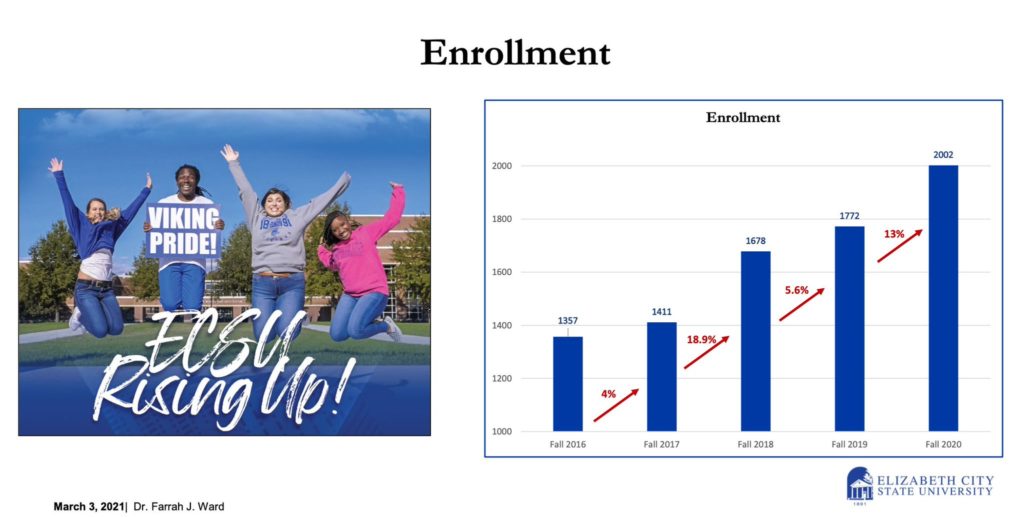
When Dixon took over as chancellor, she was intentional and strategic about recruitment. Before Dixon, the institution was operating without a true strategic plan detailing how and where they recruit. Dixon moved enrollment management under the school’s provost for daily insight and monitoring of recruitment efforts.
After evaluating data and noting that the number of graduates across the state and country was stagnant, they began to look at different pipelines for recruitment. They started with the community college pipeline.
“The provost and I traveled to every community college and met in-person with the presidents, their cabinets, and their student body presidents to hear more about what we can do to strengthen our partnership and be more intentional about the seamless pipeline for community college students,” said Dixon.
Since then, ECSU has seen a 28% increase in transfer students. During our tour, we met some of the community college transfer students who are now in the aviation science program.
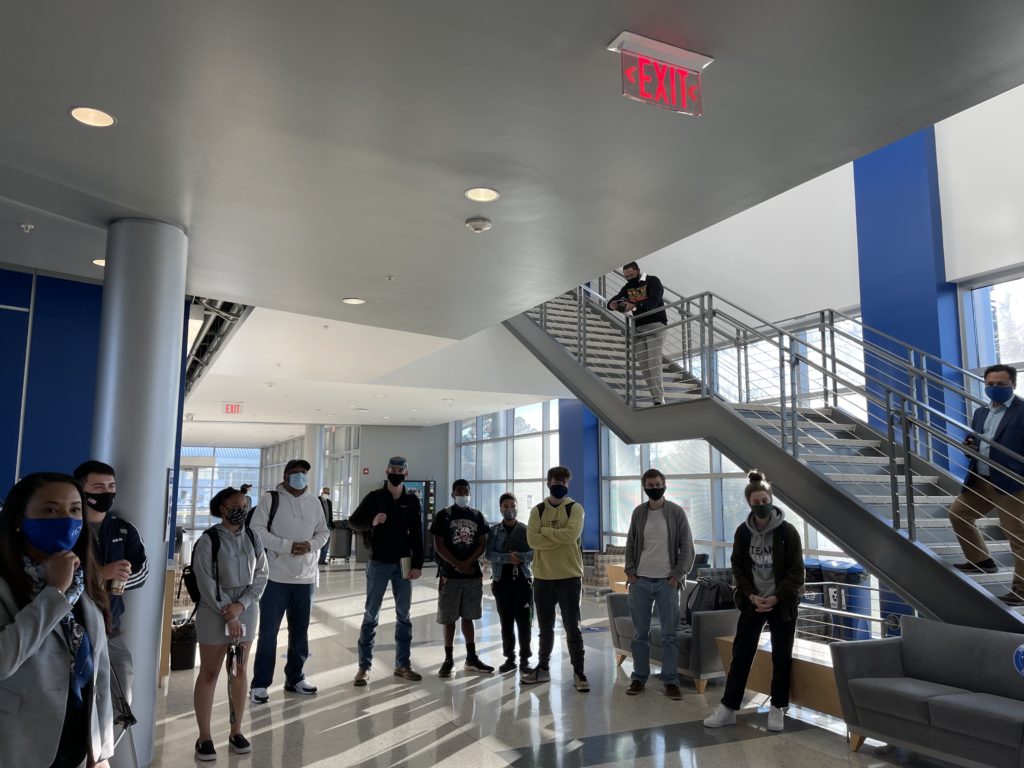
ECSU’s relationship with the military also played a role in their enrollment growth. The school deliberately invests in their ROTC army program, which brings more students to campus. Additionally, ECSU started creating new ways to reach the adult-learner population by creating flexibility among programs, including moving the master’s in elementary education to an online format.
Apart from new student recruitment, the university also focused its efforts on retention. ECSU uses an early alert system to connect students at risk of failing with staff members who can provide additional support. Provost, Dr. Farrah Ward, discussed how she and Brown, the vice chancellor of student affairs, created a partnership to make sure students’ needs were being met inside and outside the classroom. “We talk every day,” said Ward.

One thing Brown and Ward discuss is career readiness. “Career readiness is not only important for the institution, but for the students we serve,” said Brown. From their first year until they graduate, the student completes very intentional and strategic modules so they might be able to be credentialed in a different way. Brown describes this as an add-on — “something that makes them ready for the world of work.” Brown’s department also houses the Viking Career Closet that offers new and gently used business attire to students who have upcoming interviews or need professional business attire.
Additionally, ECSU connects students with alumni who have sat in their seats and have gone on to do great things in the world. “That connection provides some level of inspiration so that our students understand how you get from point A to point B,” said Brown.
From the early alert system to the outside classroom experience to career readiness, ECSU has created a collaborative partnership between academics and student affairs.
The way forward
Collaboration at ECSU doesn’t just happen among departments, it happens in the community too. The northeastern part of North Carolina has 21 counties. Of those 21, a majority are tier one counties which means they have been designated as economically distressed.
“Food insecurity is a big deal. It’s especially a big deal during a pandemic, and it’s especially a big deal in northeastern North Carolina,” said Carson Rich, special assistant for external relations. Working with internal and local partners, ECSU collected food in their own food bank and then donated over 400 pounds of food to the Food Bank of the Albemarle.
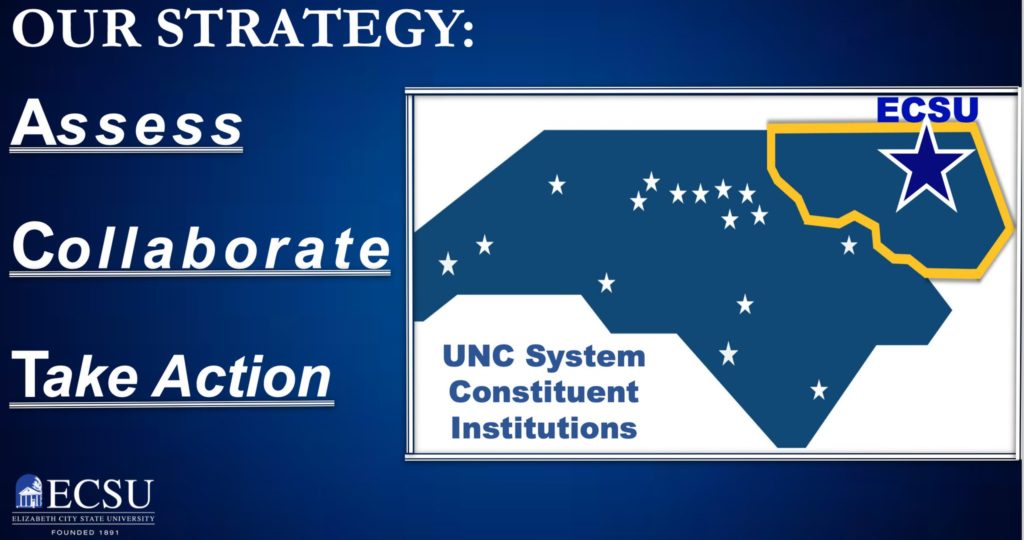
ECSU took it a step further and addressed the multi-county disparities of broadband access by acquiring mobile units and sending their own drones out to provide internet access. And when both Albemarle Regional Health Services and Sentara Medical Center needed freezers to house vaccines, ECSU lent them their freezers.
In 2020, the Golden LEAF Foundation awarded ECSU $358,000 to help launch a two-year workforce training program. The program teaches employment skills and helps guide 18-24 year olds toward a possible college education. Project Gap supports individuals with barriers to employment with job training to help fill local employer needs. Working with a number of partners and employers, the program identifies, trains, and places participants.
The university’s partnerships extend to North Carolina community colleges. In 2019, ECSU signed agreements with three North Carolina community colleges: Guilford Technical Community College, Lenoir Community College, and Sandhills Community College. The agreements allow an easy pathway for community college students to transfer to ECSU’s aviation science program, the only four-year aviation science degree program in North Carolina. And in 2020, Wake Technical Community College purchased land in eastern Wake County to build an educational training site. ECSU’s aviation science program will have space at the educational training site and will focus on emergency management and unmanned aircraft systems. ECSU will also train first responders at this location.
ECSU’s aviation science program is slated to help with projected pilot shortfalls. According to ECSU, by 2040, the number of passengers boarding planes on commercial air travel is forecasted to increase from 858 million per year to 1.3 billion. Roughly 264,000 new pilots will be needed over the coming decade. Not surprisingly, both African-Americans and women are heavily underrepresented in the aviation workforce – a gap ECSU hopes to continue to shrink.
ECSU also said the need for remote pilots is expected to increase from 162,185 to 348,537 by 2024. In 2019, ECSU’s drone program received US Department of Education and SACSCOC approval. The drone program, officially named the unmanned aircraft program, has far-reaching benefits, including medical/emergency delivery and disaster recovery. The program will help close the skills gap and increase the pool of highly qualified individuals with skills in unmanned aircraft systems to help meet North Carolina’s current and future needs.
And the needs are abundant. We learned on our tour that ECSU has partnered with government agencies including the Coast Guard and the Elizabeth City Police Department in both recovery and search efforts.
The future of Elizabeth City State University
“We are doing innovative things, but we no longer want to be a secret. We want everyone to know the great, innovative work that is happening at this university and the economic impact that we are having.”
Dr. Karrie Dixon
The 2020-2025 strategic plan of Elizabeth City State University was intentionally developed with a vision of a collective future: “Our high-quality academic programs align with community demands, meet employer needs, enhance our region and state, and drive economic development to guarantee the future success and sustainability of ECSU.”
“Our challenges are part of our story,” Dixon said. “But today, our story shows that hard work, dedication, resilience, accountability, commitment, and excellence all matter. ECSU is where students come to discover their passions and leave to conquer their dreams. And while we have experienced challenges, we have turned them into great opportunities to make sure our students remain successful in this learning environment.”
Recommended reading


